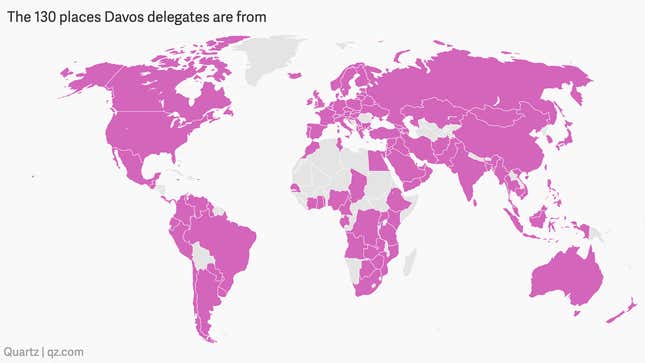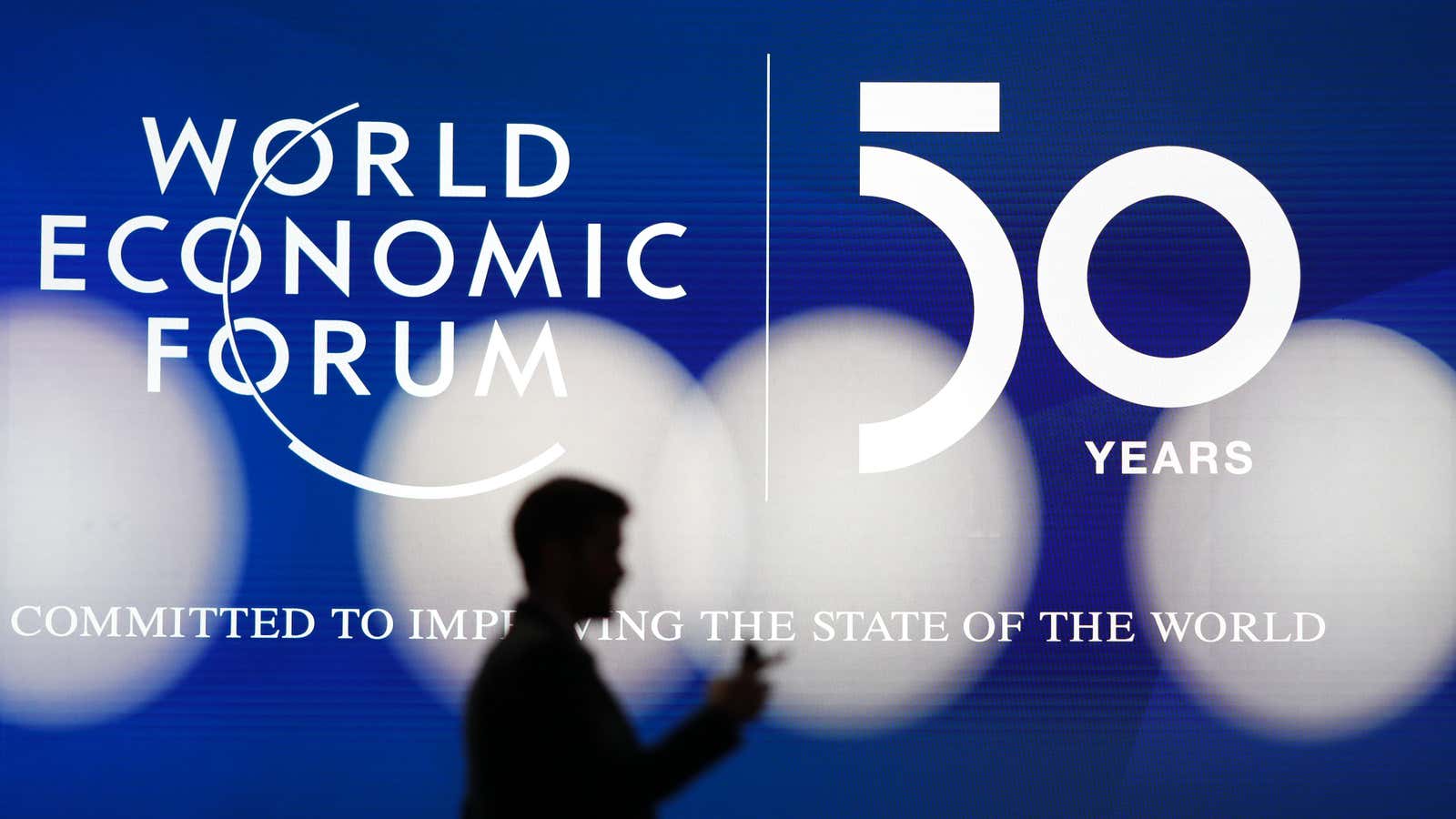The global elite really is quite global. Delegates at the 2020 annual meeting of the World Economic Forum in Davos, Switzerland, include representatives from 117 countries and 121 nationalities.
They also include finance heavyweights, a smattering of women, and conference regulars who have visited the picturesque ski village every January for close to a decade, or longer.
Information about this year’s 2,782 registered participants was submitted to us anonymously through our Secure Drop portal. Person by person, it matched the list of delegates made available to journalists. However, the information we received contains more detail on attendees than Quartz has ever seen and reveals, in ways never before disclosed, how the WEF catalogs and categorizes the world’s powerful people. (Quartz members can search and explore the entire list of names here.)
The bankers, financiers, and investors at Davos
The WEF meeting will include six representatives each from Bank of America, BlackRock, Citi, Goldman Sachs, HSBC, and Russian-lender Sberbank. There are 17 banking and investment companies sending five-person delegations. They include Barclays, Bridgewater Associates, JPMorgan Chase, Lazard, Paypal, Brazil’s Banco Bradesco, and Russia’s VTB.
The governments at Davos
Representatives from governments in 91 countries are scheduled to attend. There are 53 participants listed as either a head of state or head of government. In terms of all types of government officials in attendance, after Bern and Brussels—where local and international government officials boost the total—comes Riyadh with 15 participants, Washington with 12, and London and Beijing with 8 each.
The nationalities of Davos participants
In prior years, the delegate count for different countries was based on either where the participants lived or where their companies were headquartered. The list we received for this year also contains the nationalities of the attendees—and it shows that representation at the forum is more geographically expansive than prior lists suggest. There are 13 nationalities represented that are not otherwise represented in a participants’ country listing. There are also 11 countries where no participant is listed as a national. In one way or another, 130 countries are represented at Davos this year.

Women at Davos
As in years past, the participants are mostly men, but 2020 marks the sixth year in a row that gender diversity at the elite gathering improved. With women only making up 24% of this year’s attendees, the accomplishment is minor. Of 2,820 total participants, only 682 are women.
The participants who show up to Davos year after year
This is the eighth time Quartz has sifted through the Davos attendee lists. We’ve identified 308 people who were scheduled to participate in each of those years. The perpetual Davos men include New York Times columnist Thomas Friedman, JPMorgan Chase CEO Jamie Dimon, and Azerbaijan’s strongman president, Ilham Aliyev. Eric Cantor also appears on each of our collected lists, first as majority leader in the US House of Representatives and then, following his electoral defeat, in his new role as vice chairman at Moelis & Company.
There were only 34 women scheduled to attend each of the last eight WEF annual meetings. They include Christine Lagarde, the former IMF chief who is now president of the European Central Bank; Anne Finucane, the vice chairman of Bank of America; and Ruth Porat, former Morgan Stanley exec and current CFO of Alphabet.
The no-longer Davos men
Of course, there are some folks who are missing their first Davos in at least eight years. Quartz identified 70 such people. This group includes CEOs who have switched out of their roles in the past year, including SAP’s Bill McDermott, EY’s Mark Weinberger, and IDEO’s Tim Brown. (Each of their successors is on the list to attend this year.)
Other Davos mainstays missing the event this year include Adidas CEO Kasper Rorsted (no Adidas employees are listed this year), US political expert David Gergen, and James C. Smith, the CEO of Thomson Reuters.
